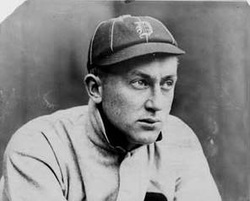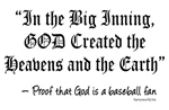
Jennings was in a tough predicament. The pride of being a 17 year MLB player and in his 6th year as a manager kept him from wanting to simply forfeit the game. Conventional wisdom would say that any amateur, semi-pro or other team assembled would probably embarrass the Tigers. Perhaps the thought of a forfeit would be more embarrassing. Jennings decided to field a team of semi-pros and amateur players, some not even playing the sport, to play the game against the Athletics, led by manager Connie Mack. Remember, the Athletics were in the midst of a one of their best runs in the history of the franchise- winning the WS in 1910 and 1911. So anything less than the best Tigers lineup would not stand a chance. Remember, the Tigers were just a couple years removed from winning three consecutive AL Pennants from 1907-1909.
Jennings himself would play in the game, getting a pinch AB late in the game. Coaches Deacon McGuire and Joe Sugden would play in the game as well. The coaches would get 2 of the team's 4 hits against the Athletics, a game won by Philadelphia 24-2. Sugden, who hadn't played in a game since 1905, went 1-4. McGuire, who played in 26 seasons, hadn't played in a full season since 1906, though he made sporadic appearances in games from 1907-1910. The rest of the players failed to make a big league appearance in another game except 3B Billy Marang, who went 0-1 in the 1912 game. Marang appeared for the Philadelphia Phillies in 1916, going 0-1 in a game that season.
What stands out about the 24-2 loss by the Tigers that day is that starting pitcher Allan Travers pitched all 8 innings (the game was in Philadelphia) and gave up all 24 runs (14 earned). He yielded 26 hits, walked 7 but struck out 3 in the game. That was his only big league appearance. 3B Ed Irvin was 2-3- both hits were triples. After the game, the Tigers players rescinded their protest at the urging of Cobb.
Think about an event leading to a suspension to a player in today's age. The players union supports the players and the league gives them the option to appeal the suspension. For that reason, it is highly unlikely that a team would refuse to play a game in protest. There is more of a chance that a team forfeits a game- see the Washington Senators last game before they moved to Texas on 9/30/71, 10 cent beer night 6/4/74, disco demolition night 7/12/79 or Dodgers baseball giveaway 8/10/95. Also, during a game in September of 1977, Orioles manager Earl Weaver deliberately forfeited a game to the Blue Jays in Exhibition Stadium after a lengthy argument over a tarp that Weaver deemed unsafe.

 RSS Feed
RSS Feed
